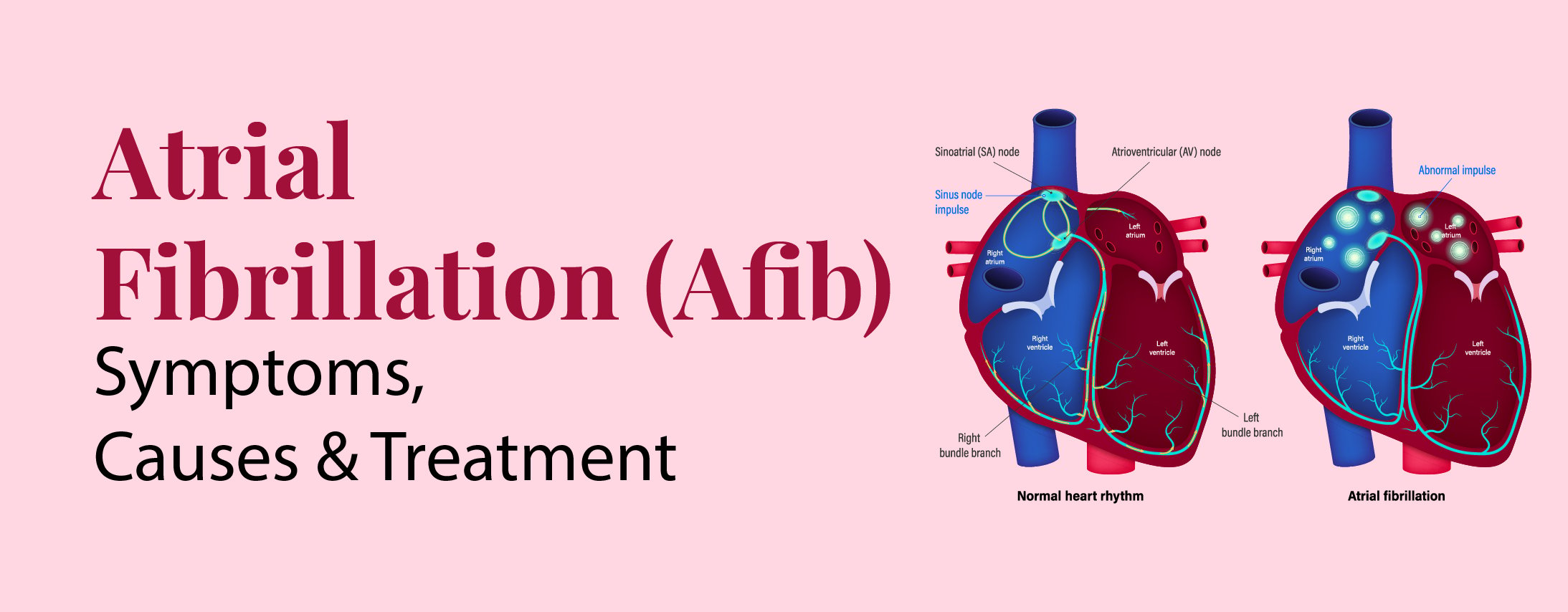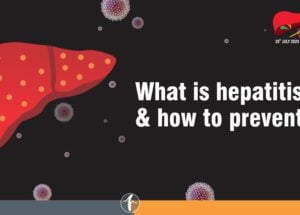Atrial Fibrillation (Afib): Symptoms, Causes and Treatment
May 2, 2025

Atrial Fibrillation (AFib): Symptoms, Causes, and Treatment
Atrial fibrillation (AFib) is a common cardiac illness characterized by an irregular and frequently rapid heartbeat. If AFib is not treated, it can lead to serious complications, but with proper treatment and lifestyle adjustments, many people can successfully manage it. Anyone affected by this condition should be aware of the symptoms, causes, and potential therapies.
Understanding Atrial Fibrillation
Electrical signals are required for the heart to maintain a regular and synchronized rhythm. These signals ensure that the lower chambers (ventricles) and upper chambers (atria) work together to efficiently pump blood in a healthy heart. These electrical signals, however, become erratic in AFib, causing the atria to quiver rather than properly contract. This disturbance may have an impact on blood flow, increasing the risk of complications such as heart failure or stroke.
Symptoms of Atrial Fibrillation
AFib symptoms can vary from person to person. Some individuals experience noticeable discomfort, while others may not even realize they have the condition until it is detected during a routine check-up. The most common symptoms include:
- Irregular or rapid heartbeat – Many people describe feeling their heart racing or fluttering unpredictably.
- Palpitations – A noticeable sensation of an irregular heartbeat, sometimes accompanied by a pounding feeling in the chest.
- Shortness of breath – Difficulty breathing, especially during physical exertion or while lying down.
- Fatigue – A general feeling of tiredness or lack of energy, which can interfere with daily activities.
- Dizziness or lightheadedness – A feeling of being unsteady or faint, which may be caused by inefficient blood circulation.
- Chest discomfort – Mild to moderate chest pain or pressure, which should always be evaluated by a medical professional.
Some people with AFib may not experience any symptoms at all, making regular health check-ups crucial for early detection and management.
Causes and Risk Factors
AFib can develop due to various underlying conditions and lifestyle factors. Some of the most common causes and risk factors include:
- Heart conditions – Pre-existing heart diseases, such as high blood pressure, coronary artery disease, heart valve problems, or previous heart attacks, can contribute to AFib.
- Age – The risk of developing AFib increases with age, as the heart’s electrical system may become less stable over time.
- High blood pressure – Uncontrolled hypertension can put strain on the heart, increasing the likelihood of irregular heart rhythms.
- Obesity – Excess weight can lead to structural changes in the heart and increase the risk of AFib.
- Diabetes – This condition is linked to heart complications, including AFib.
- Thyroid disorders – An overactive or underactive thyroid can affect heart function and contribute to abnormal rhythms.
- Sleep apnea – This condition, characterized by interrupted breathing during sleep, has been linked to AFib.
- Alcohol and caffeine consumption – Excessive alcohol intake and high levels of caffeine may trigger irregular heartbeats in some individuals.
- Smoking – Tobacco use is a major risk factor for cardiovascular diseases, including AFib.
- Family history – Genetics can play a role in the development of AFib, increasing susceptibility in some individuals.
Treatment and Management
A comprehensive plan based on each individual’s condition, symptoms, and overall health is required to manage AFib. Even though treatment regimens may differ, the primary goals are to restore a normal heart rhythm, avoid complications, and improve quality of life.
Lifestyle Modifications
Adopting a heart-healthy lifestyle can significantly help in managing AFib. Some key lifestyle changes include:
- Maintaining a healthy diet – Eating a balanced diet rich in fruits, vegetables, whole grains, and lean proteins can support heart health.
- Regular exercise – Engaging in moderate physical activity, as recommended by a healthcare provider, can improve cardiovascular fitness.
- Managing stress – Practices such as meditation, deep breathing, and yoga can help reduce stress, which can contribute to AFib episodes.
- Limiting alcohol and caffeine – Reducing the intake of these substances can help in minimizing triggers for irregular heartbeats.
- Quitting smoking – Stopping tobacco use improves overall heart health and reduces the risk of AFib-related complications.
Medical Interventions
Depending on the severity and underlying cause of AFib, medical interventions may be necessary. Treatment options may include:
- Heart rhythm control – Some individuals may require procedures to restore a normal heart rhythm.
- Heart rate control – Medications or procedures may be used to help control the heart rate and prevent excessive strain on the heart.
- Stroke prevention – Since AFib increases the risk of stroke, preventive measures may be recommended to reduce this risk.
Regular Monitoring and Follow-Ups
Regular medical checks are required to appropriately control AFib. Frequent monitoring allows medical personnel to assess the success of the treatment plan and make any required changes. Additionally, it aids in early problem detection, ensuring timely response.
Conclusion
Even though AFib may persist for a lifetime, it can be managed with proper care. People with AFib can live active, satisfying lives if they understand their symptoms, identify risk factors, and stick to their treatment plan. To effectively manage this illness, proactive healthcare, education, and awareness are required.
If you or someone you know is showing symptoms of AFib, you should seek medical attention right away. Early diagnosis and treatment can have a significant influence on heart health and overall well-being.
Frequently Asked Questions
1. Is Atrial Fibrillation a serious condition?
AFib itself is not always life-threatening, but it can lead to serious complications like stroke, heart failure, and blood clots if left unmanaged. Proper treatment and lifestyle adjustments can help reduce risks.
2. Can AFib go away on its own?
In some cases, AFib episodes may be temporary and resolve on their own. However, for many people, it is a chronic condition requiring ongoing management. A healthcare provider can help determine the best approach based on individual cases.
3. What triggers an AFib episode?
Common triggers include stress, excessive alcohol or caffeine consumption, dehydration, poor sleep, certain medications, and underlying health conditions. Identifying and avoiding triggers can help manage symptoms.





